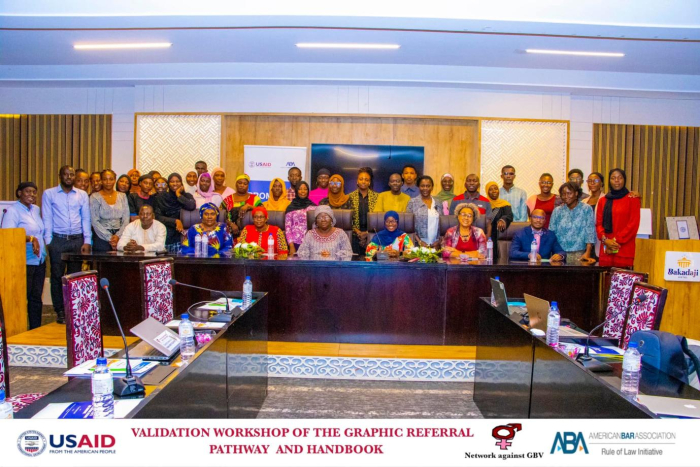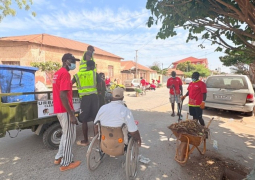
The document that was validated after a thorough review embodies collective dedication to advancing gender equality, fortifying the rights of women, and strengthening mechanisms for social welfare.
Baboucar Gaye, a representative from the Ministry of Gender, Children and Social Welfare explained that in a world where equitable opportunities and unwavering respect for all individuals, irrespective of gender, remain pivotal, the establishment of a comprehensive Referral Pathway Handbook is paramount.
This invaluable resource, he added, serves not only as a structured guide, but as a beacon of hope and guidance for the facilitation of assistance, support, and empowerment for women facing various challenges and vulnerabilities.
“Our society demands a system that is not only responsive but also systematic in addressing the multifaceted needs of women. The Referral Pathway Handbook signifies a structured approach, equipping us with the necessary tools and guidelines to ensure swift and effective responses, offering timely and appropriate interventions to those in need,” he said.
The handbook, he added, represents their collective pledge to stand in solidarity with those who require their support, and dedication to forging a society where women not only have equal opportunities but are also embraced as empowered and respected contributors in every facet of life.
“At the core of our commitment lies the recognition of the pivotal role a well-defined referral system plays in ensuring a comprehensive and efficient response to the needs of women within our communities. Through the handbook, we aim not only to outline processes but to reinforce a commitment to empower and support those in need,” he stated.
Fallu Sowe, national Coordinator of NGBV, underscored the importance of the forum, saying the referral pathway they had before was just developed without an infographic and handbook to help in accessibility for service users.
“This is important because we should know that the referral pathway has to be used by people, women, and children. This is a step in the right direction and a step forward to ensure that we are able to make services accessible to service users and also be friendly for them to access it.” he stated.
Read Other Articles In National News




